madi™
2022 - 2024
Background
Client: Protera
Role: Lead Product Designer – No code
Design team size: 2
Development team size: 4
AI algorithm development team size: 8
Platform: Web only
Tool stack: Figma, Notion, G-forms, Maze
Project duration: 2 years
Link: madi.bio
Proteins are highly versatile, with roles from enzyme activity to structural support, offering immense potential for global food challenges. Though billions of proteins exist, traditional study methods are slow, taking years due to biological complexities and the gap between theory and real-world outcomes. Protera’s answer to this problem is madi™, next-generation protein engineering software with the most advanced artificial intelligence.

Process
Research & problems
Protera’s advanced AI algorithms represent a breakthrough in protein enhancement, opening new business avenues. This technology benefits a diverse range of users, from students to major corporations enhancing protein-based products. To refine our approach, I surveyed biologists and protein engineers from Protera’s partner companies, focusing on daily workflows, essential skills, and professional challenges. Here are the Key Insights:
Typical Workflow:
- Staying updated via research papers, developing GitHub repositories, and in-house machine learning tools.
- Enzyme screening and discovery through lab work complemented by in-silico analysis, utilizing custom tools for data processing and visualization.
- Providing labs with processed data to guide experiments and molecular development.
Essential Skills:
- Proficiency in Python, machine learning libraries, and effective communication.
- Biochemistry, microbiology, and good lab practices, especially with enzyme degradation data relevant to machine learning.
- Basic programming for lab automation and robust data analysis for candidate screening.
Challenges & Frustrations:
- Limited data for effective modeling, particularly due to patent restrictions and dependency on public data.
- Difficulty predicting biological behavior and navigating organizational constraints.
- Frustration with inefficient tools and pipeline optimizations, delays in processes, and challenges acquiring large, accurate datasets efficiently.

MVP & proof of concept
We developed an intuitive MVP interface for launching a “Protein Mutation Campaign.” This feature lets users select a protein and enhance it using AI-supported, industry-standard properties, addressing key needs and providing benefits such as:
- Variant Generation: Create proteins that can be patented, and new, unregistered variants.
- Bulk production: Generate several protein variants to enable lab testing, enhancing data collection and decision-making.
- No Coding Needed: Designed for accessibility, allowing users with basic protein knowledge to operate it seamlessly.
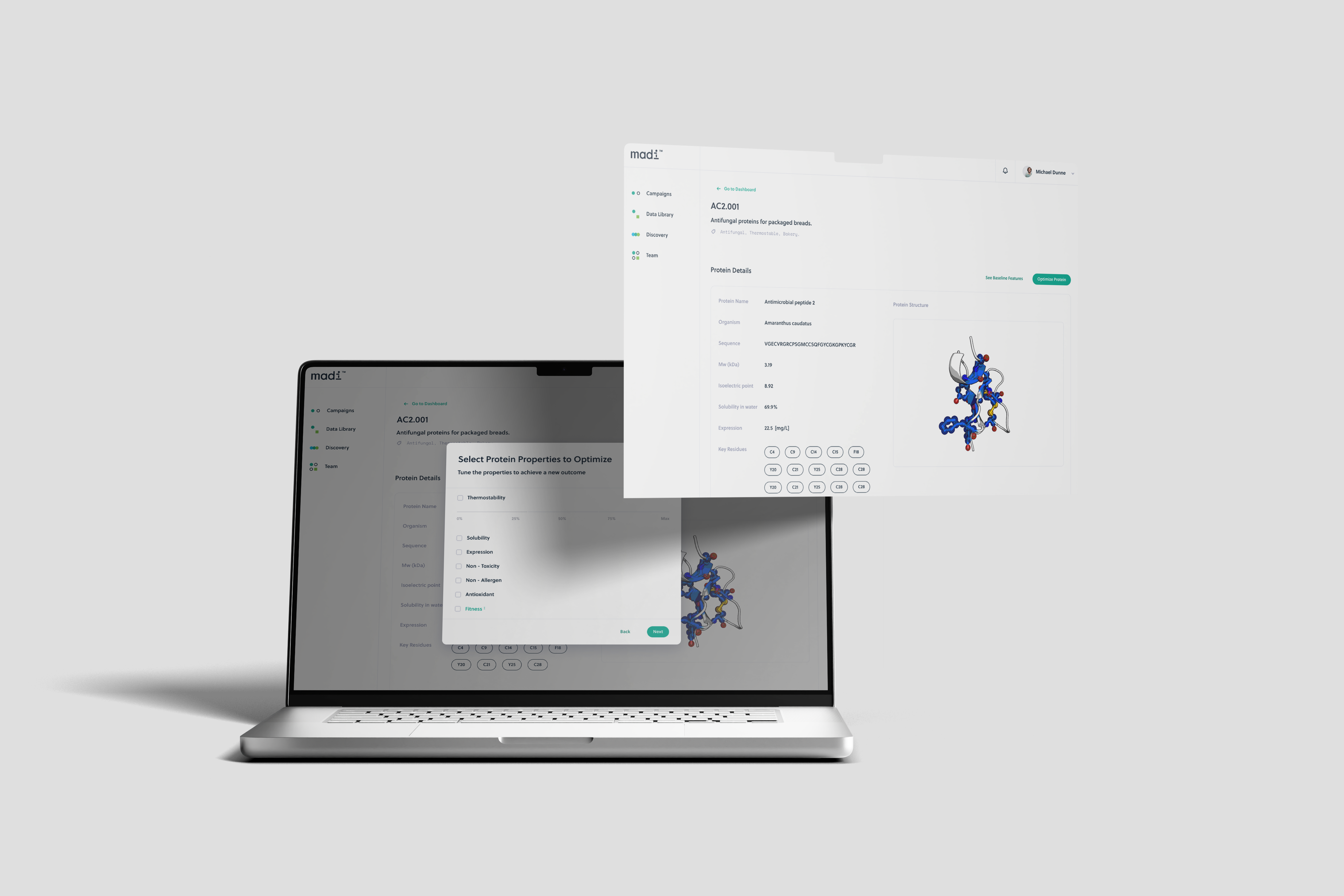
Testings and findings
Insights from our testing phase revealed user preferences and needs:
Process Clarity:
- Users preferred starting with a selected protein to view structure and data, then launching multiple campaigns with varying settings—facilitating iteration and richer insights.
Feature Needs:
- Identify new proteins with similar activities, not just sequence variants.
- Visualize mutation campaign results with aligned sequences for comparison.
- Prioritize properties to improve, maintain, or reduce.
Management Needs:
- Enable team collaboration on projects.
- Offer resource management to monitor algorithm usage, supporting a payment model for efficient Amazon server utilization.
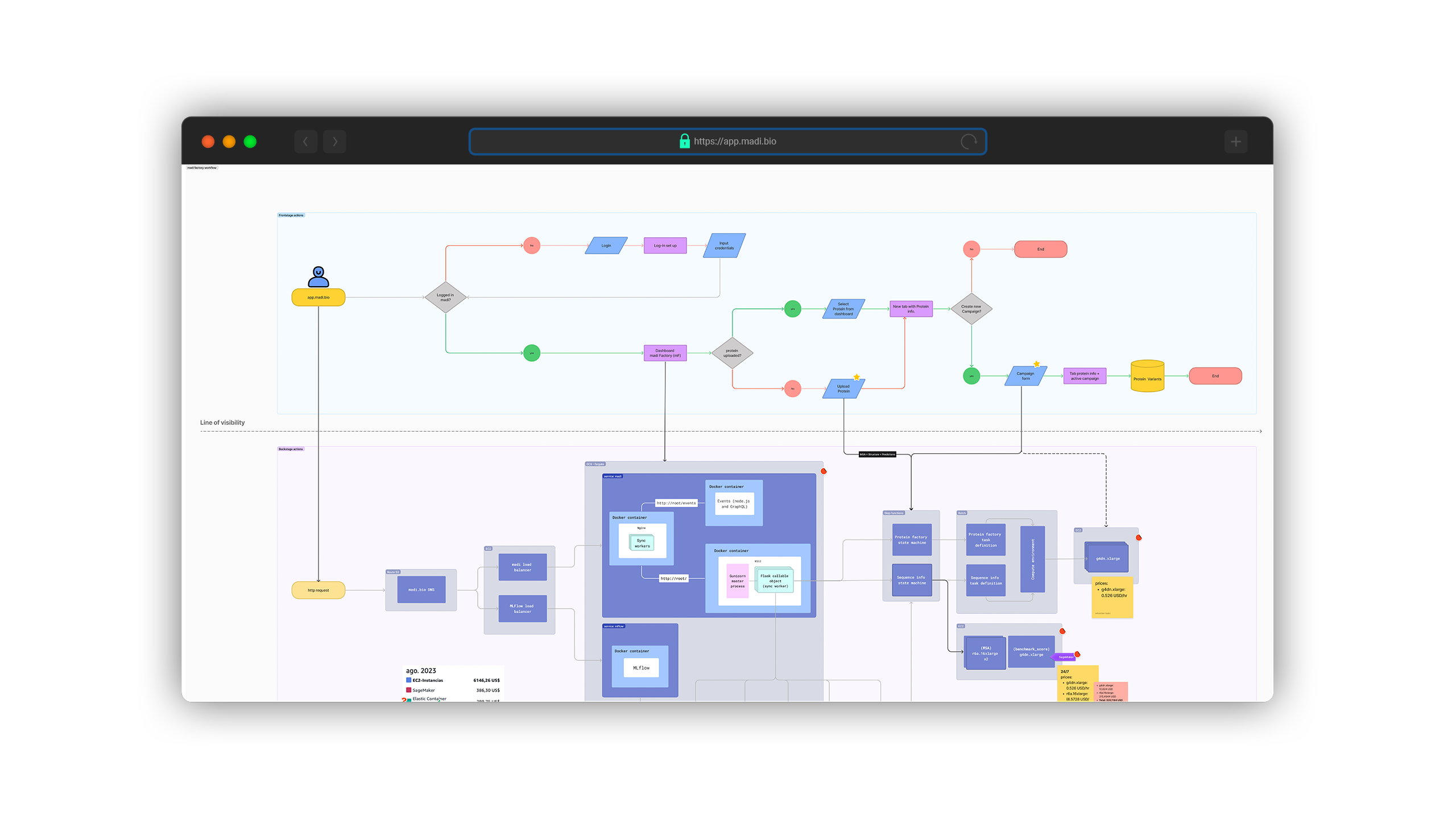
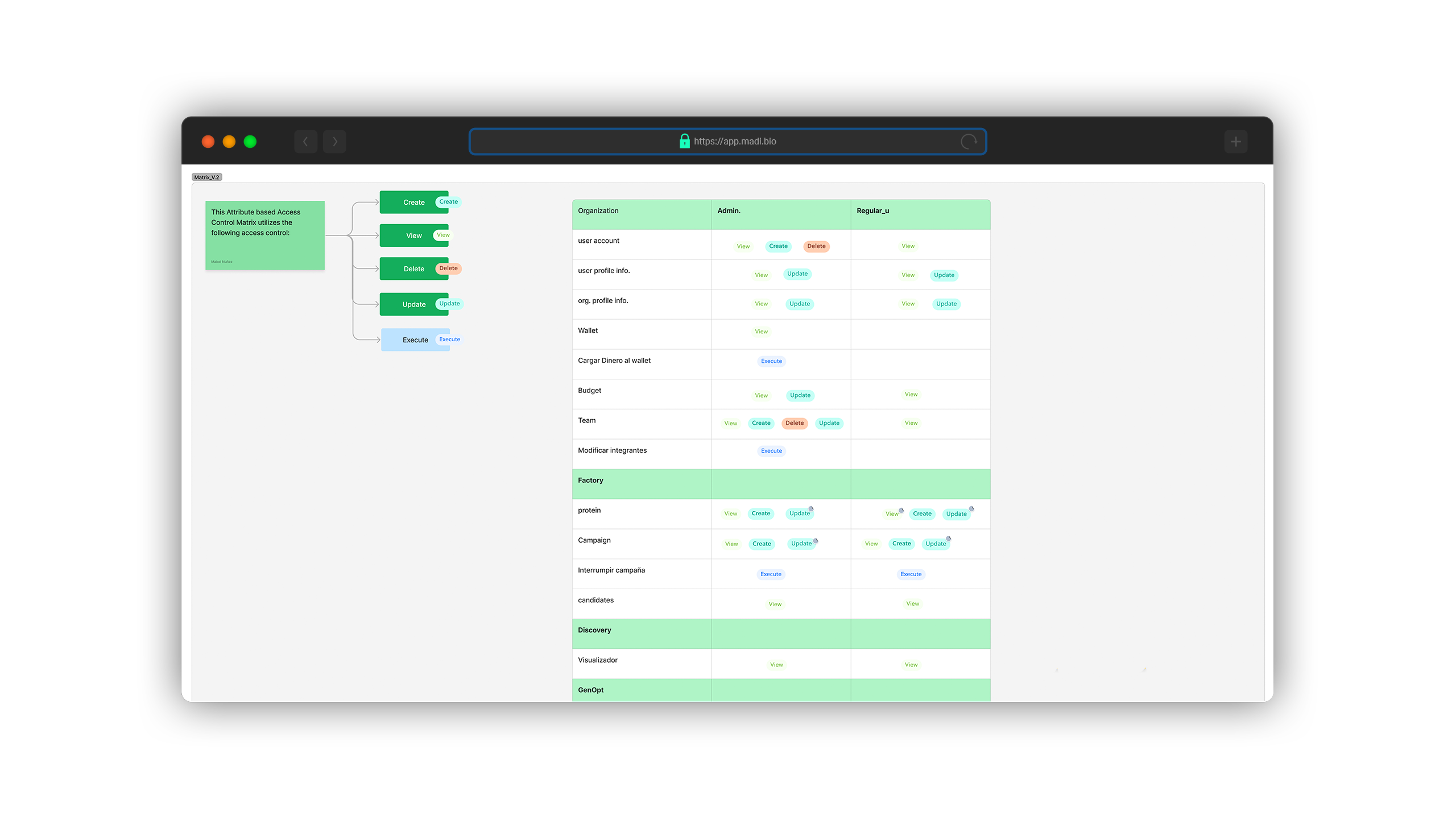
Outcome
The final product: An environment for protein engineering
After team collaboration and assessing feedback, we developed new modules to enhance protein engineering workflows. At this stage, we also established unique branding for madi™ to position it as a standalone product, setting a standard for protein engineering. Our six core platform principles are:
- Efficiency: Deliver valuable results.
- Power & Flexibility: Support diverse protein applications.
- Adaptability: Leverage user data effectively.
- Innovation: Provide advanced algorithms and tools.
- Usability: Ensure accessibility for users at all levels.
- Privacy: Secure work under contracts or patents.
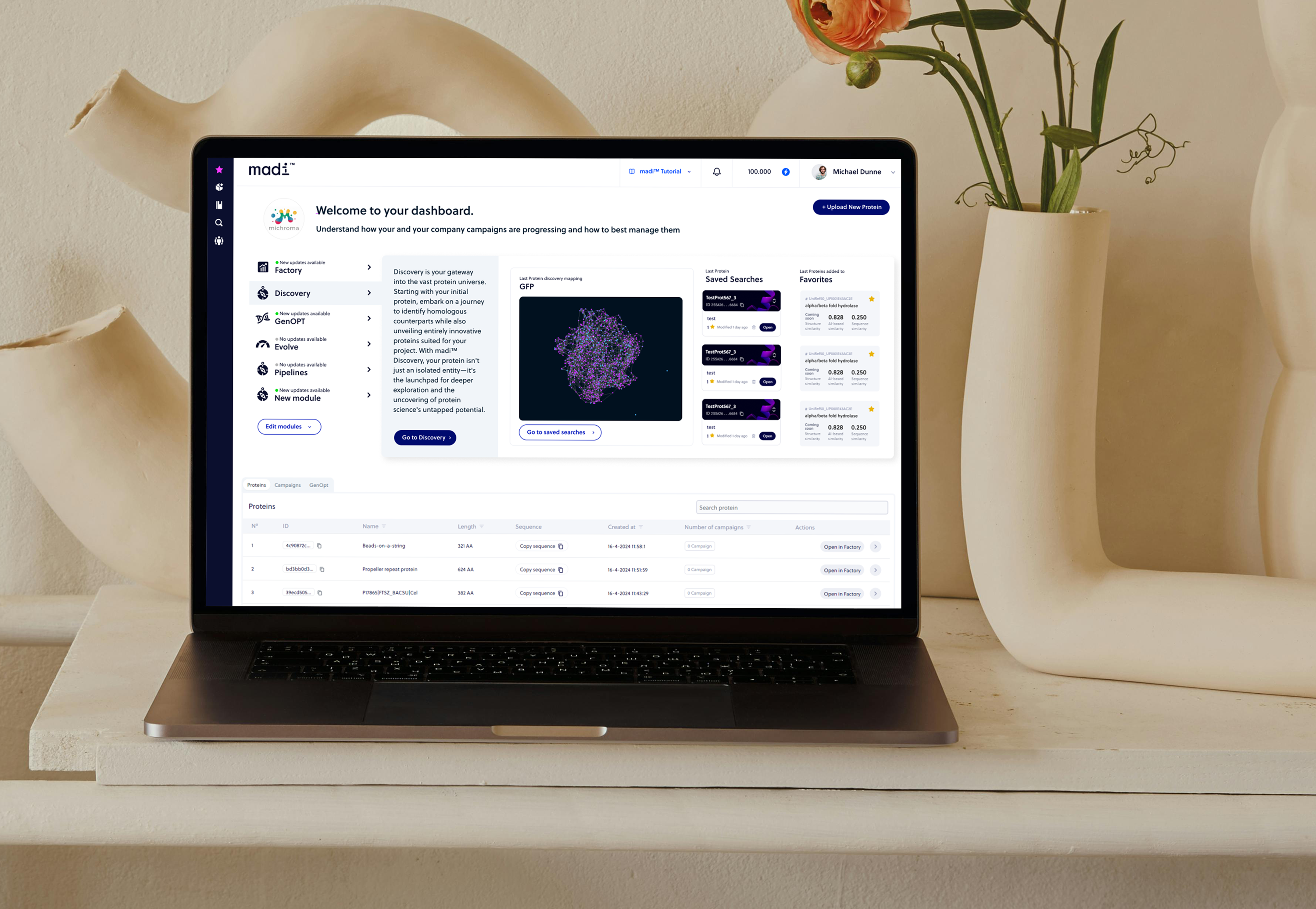
Module 1: Protein Factory
This module allows users to optimize proteins with high precision, offering a range of tools to tailor their performance to specific needs. By using advanced algorithms, the platform helps users refine the structure and functionality of their proteins, ensuring they reach their peak performance in a variety of applications. With madi™ Factory, users can tweak and fine-tune the proteins for enhanced activity, stability, or any other desired characteristic, empowering them to achieve the exact outcomes needed for their research or production processes.
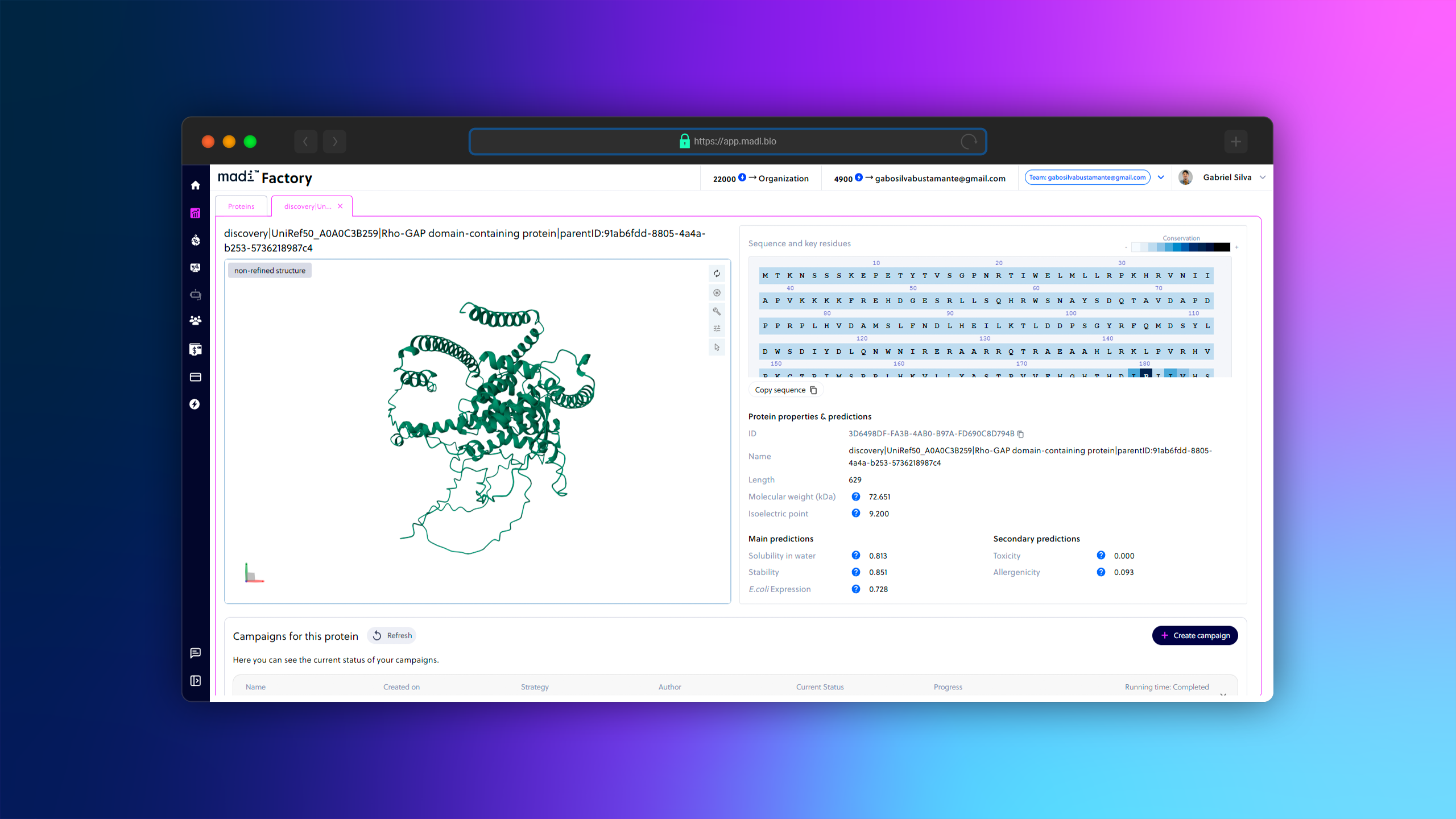
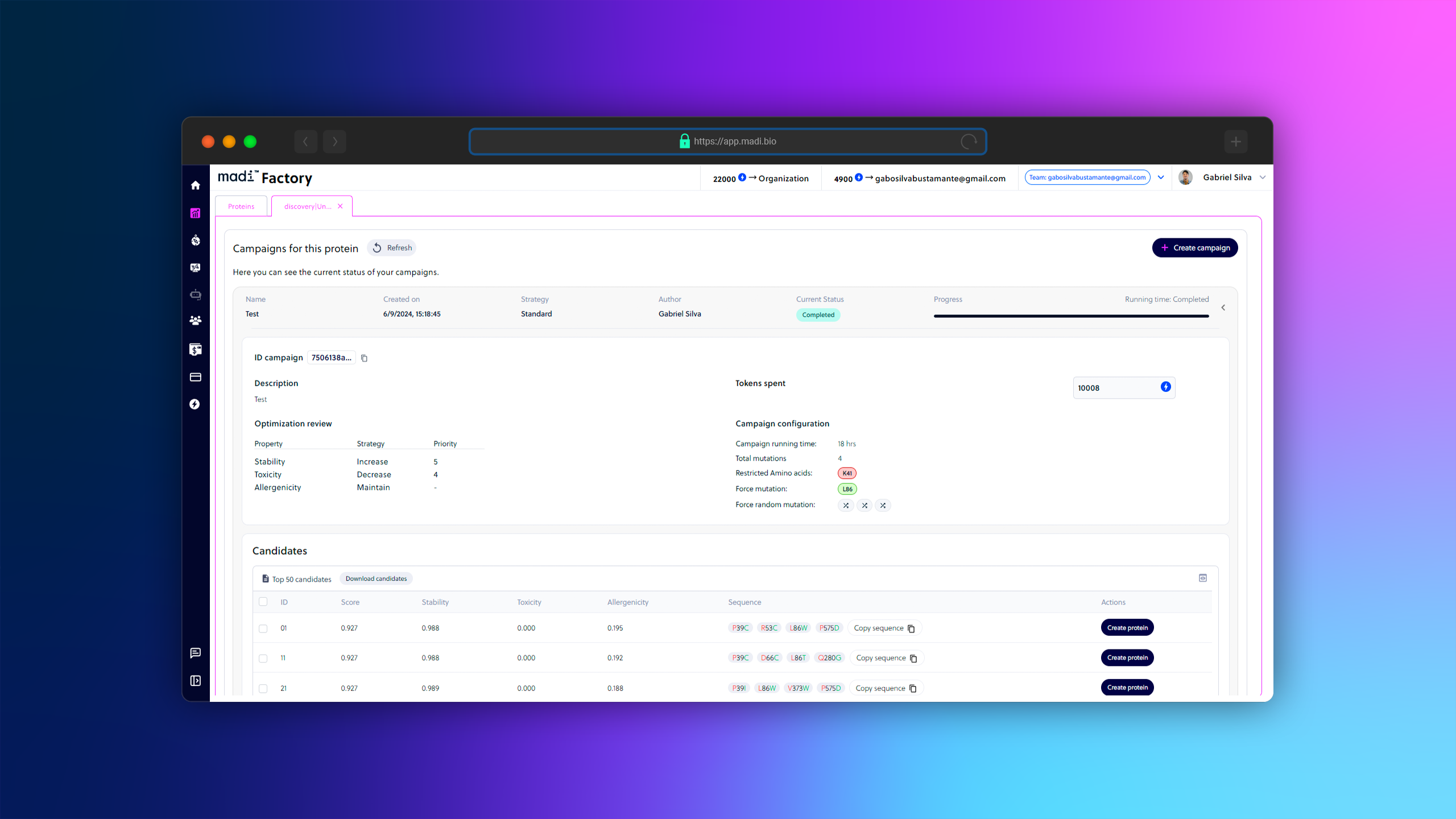
Module 2: Protein Discovery
This module enables users to explore and discover a broad array of proteins and their potential functions. Starting with a single protein, it can find up to 1,000 variants that share similar activity, giving users the opportunity to uncover novel proteins that could enhance their projects. The process is powered by sophisticated algorithms that analyze and predict protein behavior, providing valuable insights into their properties. Additionally, the collaboration with Cosmograph significantly reduced the development time, allowing users to accelerate their research. For those looking to dive deeper into data visualization, Cosmograph offers specialized tools for visualizing clusters, making it a highly recommended partner for users focused on advanced analysis.
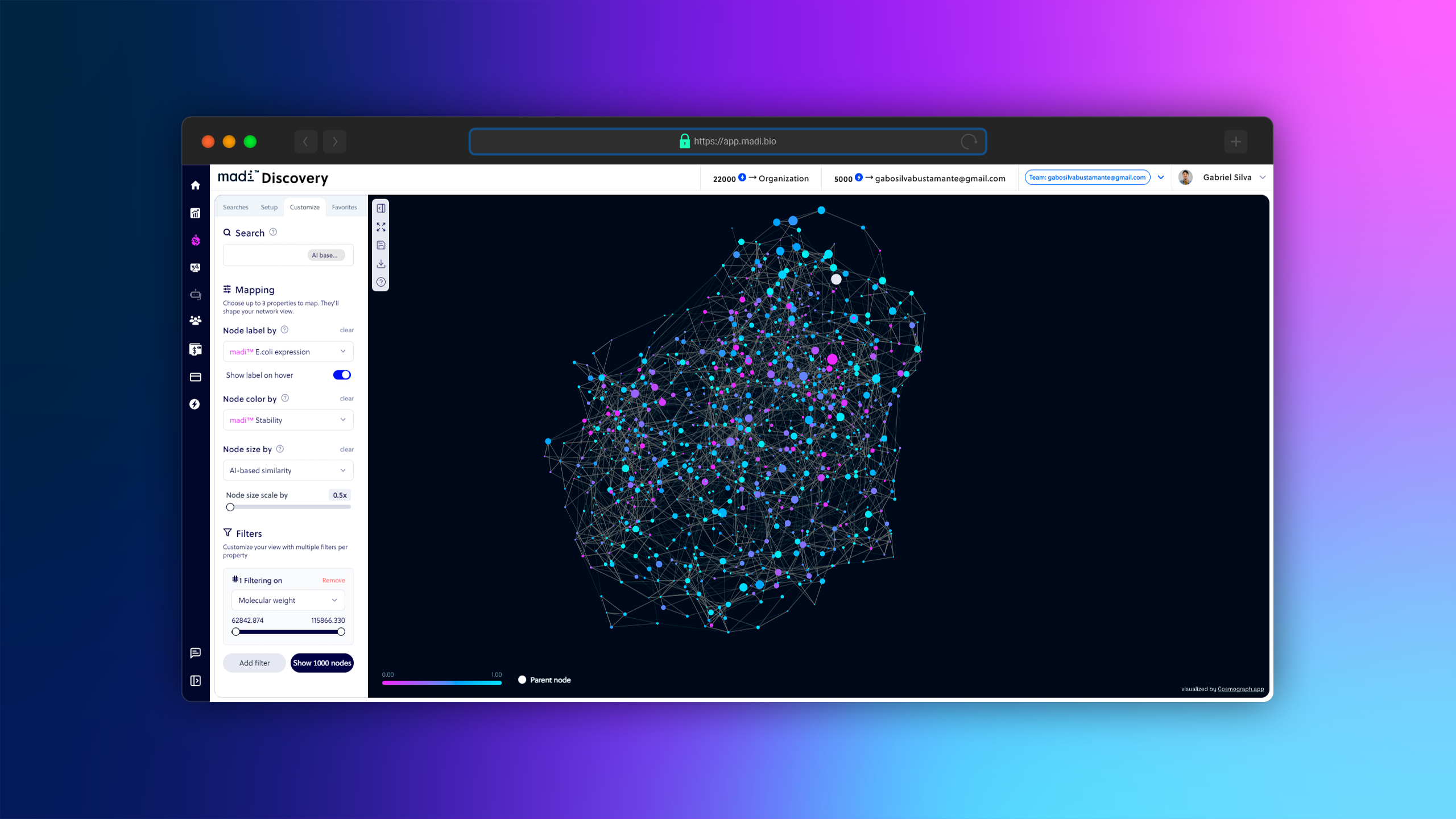
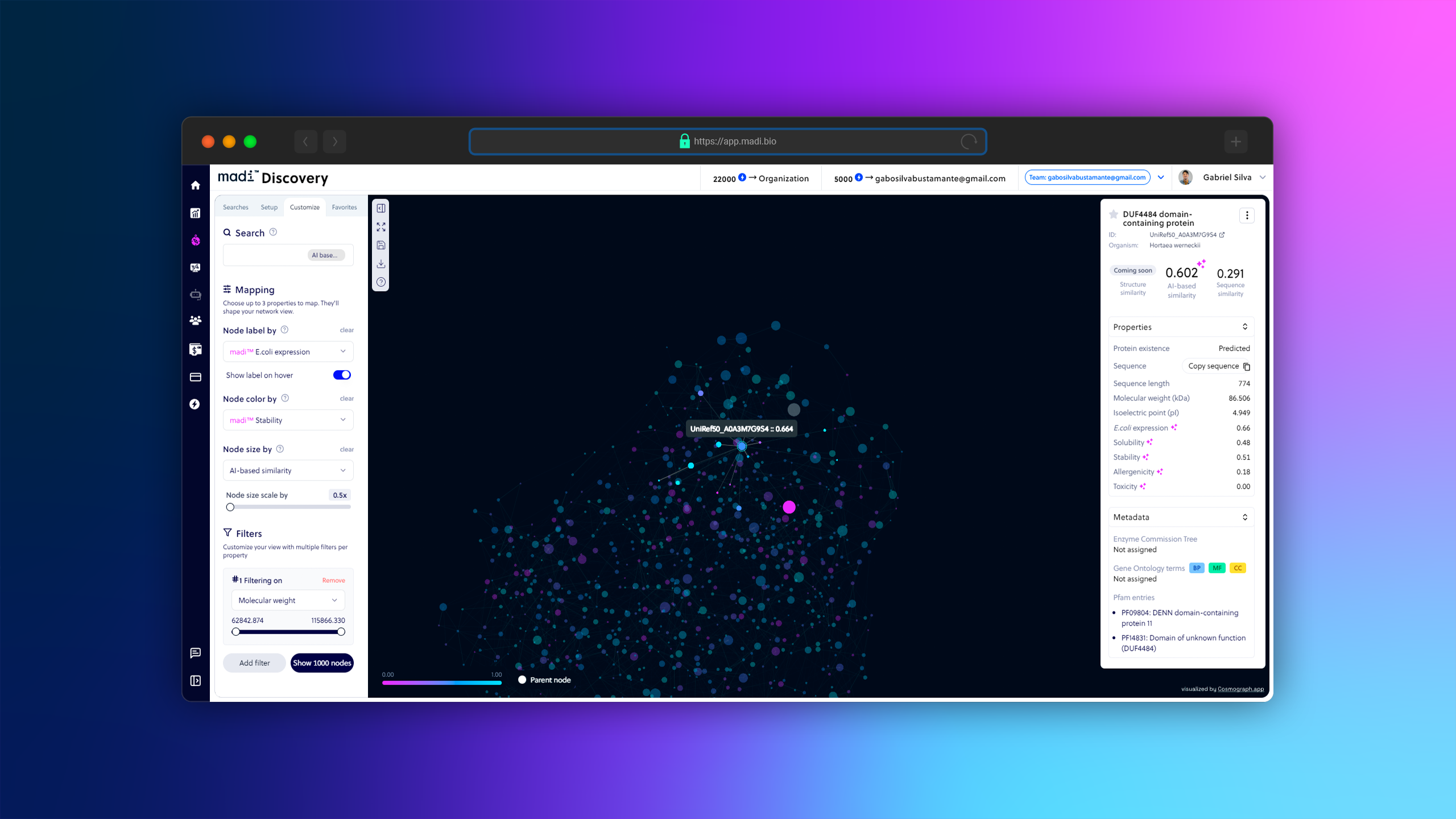
Module 3: GenOPT
madi™ GenOPT provides users with a robust gene optimization tool, designed to generate unique gene sequences tailored for improved expression in host organisms. The module uses advanced optimization algorithms to adjust the gene sequence, maximizing the efficiency and functionality of the resulting protein. This process ensures that the genetic code is optimized for both expression levels and stability, essential for successful applications in research and biotechnology. Furthermore, the integration with GenScript streamlines the entire workflow, allowing users to send their optimized gene sequences directly for synthesis. This seamless connection reduces manual steps, saving valuable time and simplifying the transition from design to production.
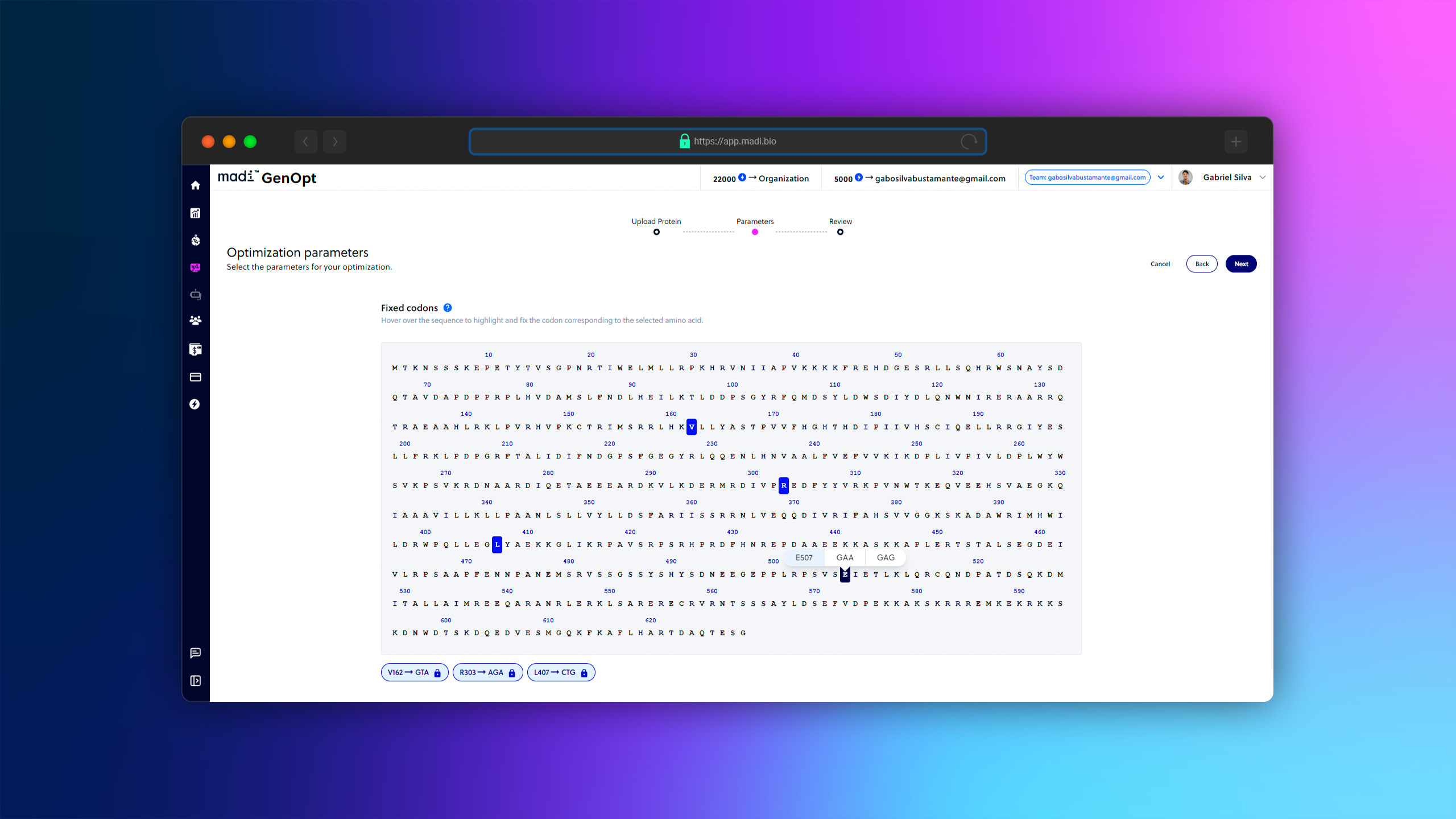
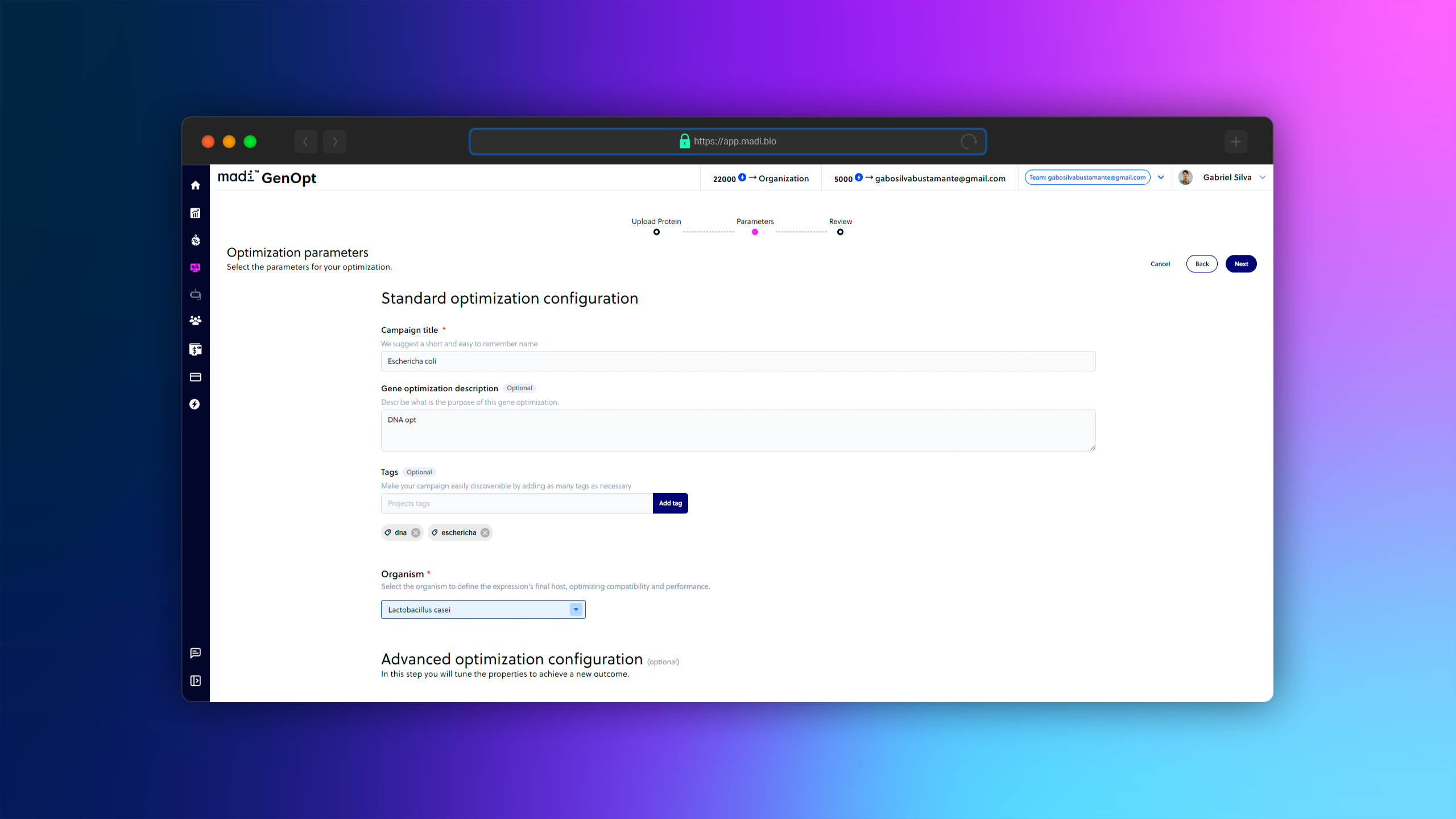
Management module 1: Teams
This module allows users to efficiently manage people, teams, and organizations while ensuring robust data protection. It provides comprehensive tools for controlling access to proteins and resources, enabling users to assign specific permissions based on roles and responsibilities. Teams can tailor access levels to their needs, ensuring that sensitive data is only available to the appropriate individuals or groups. This functionality is essential for maintaining security and privacy while facilitating collaboration across different teams, making it easier to manage workflows and protect valuable resources.
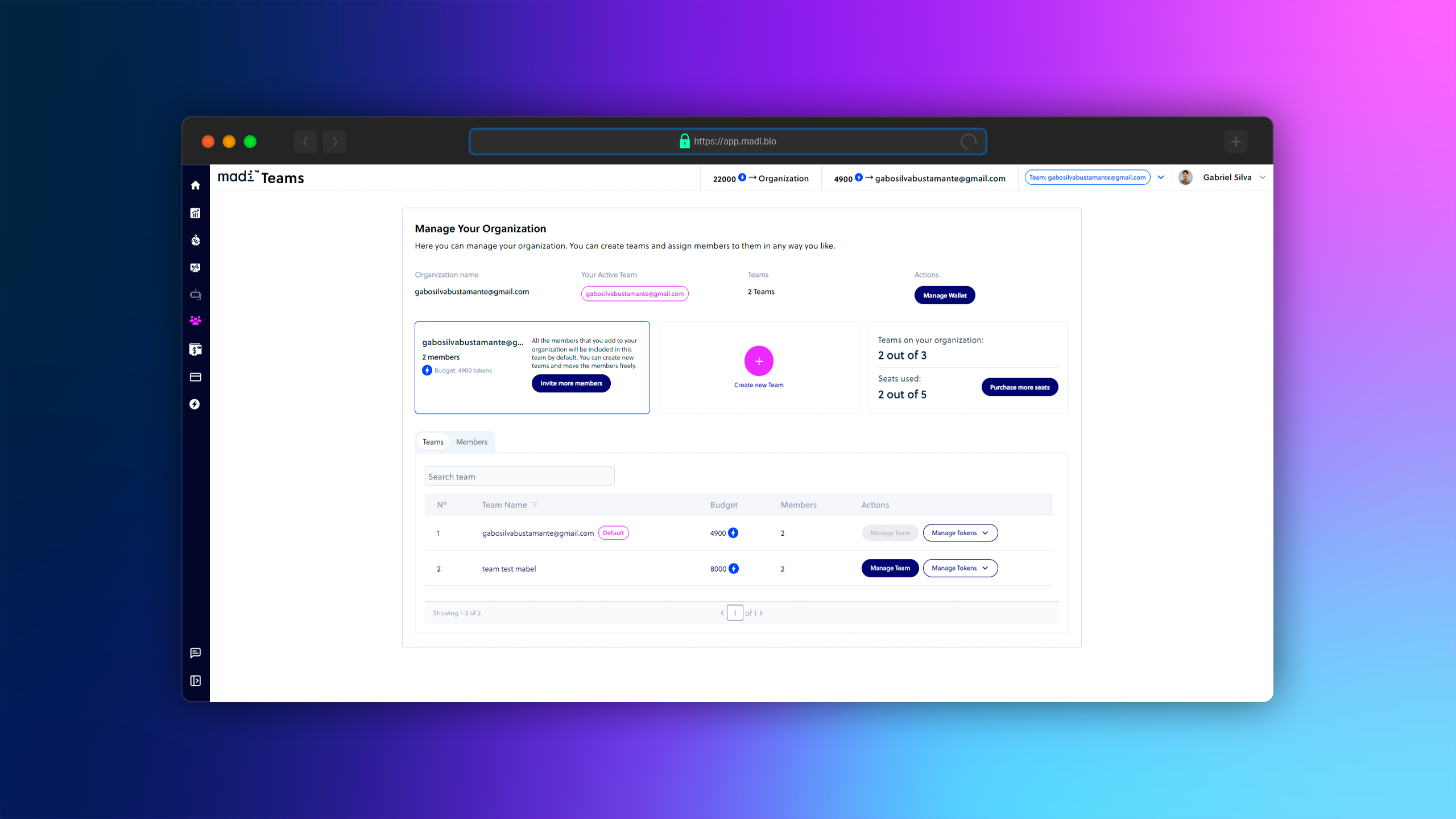
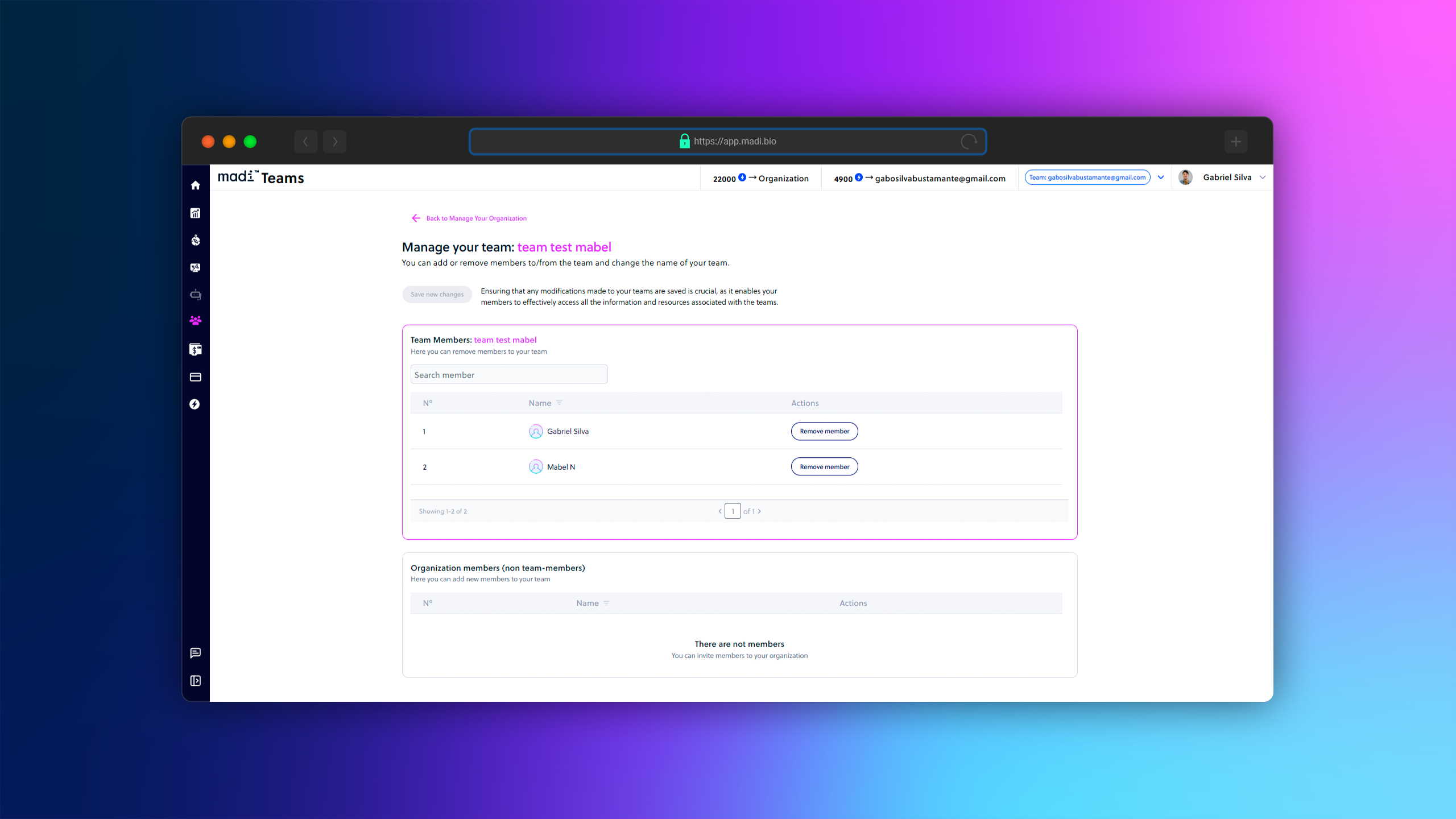
Management module 2: Tokens
A token serves as a unit of currency within the platform, used to access computational resources for specific tasks. madi™ operates on a token-based system, where users pay based on the resources they consume during various operations. This flexible model allows users to purchase token packs, which can then be allocated towards specific analyses or computational tasks within the platform. By using tokens, users gain greater control over their resource consumption, ensuring that they only pay for what they need, while streamlining the overall management of resources and costs.
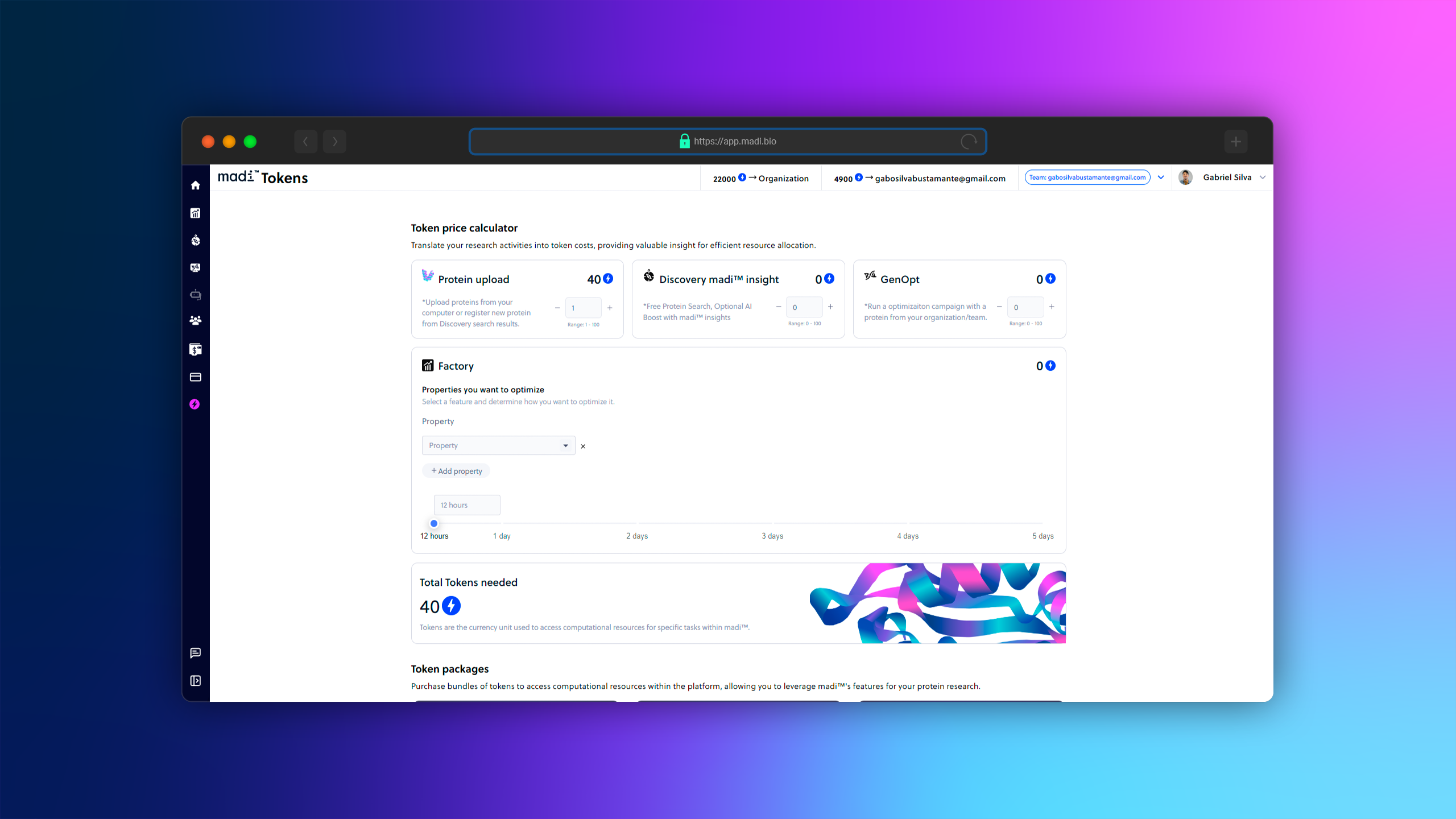
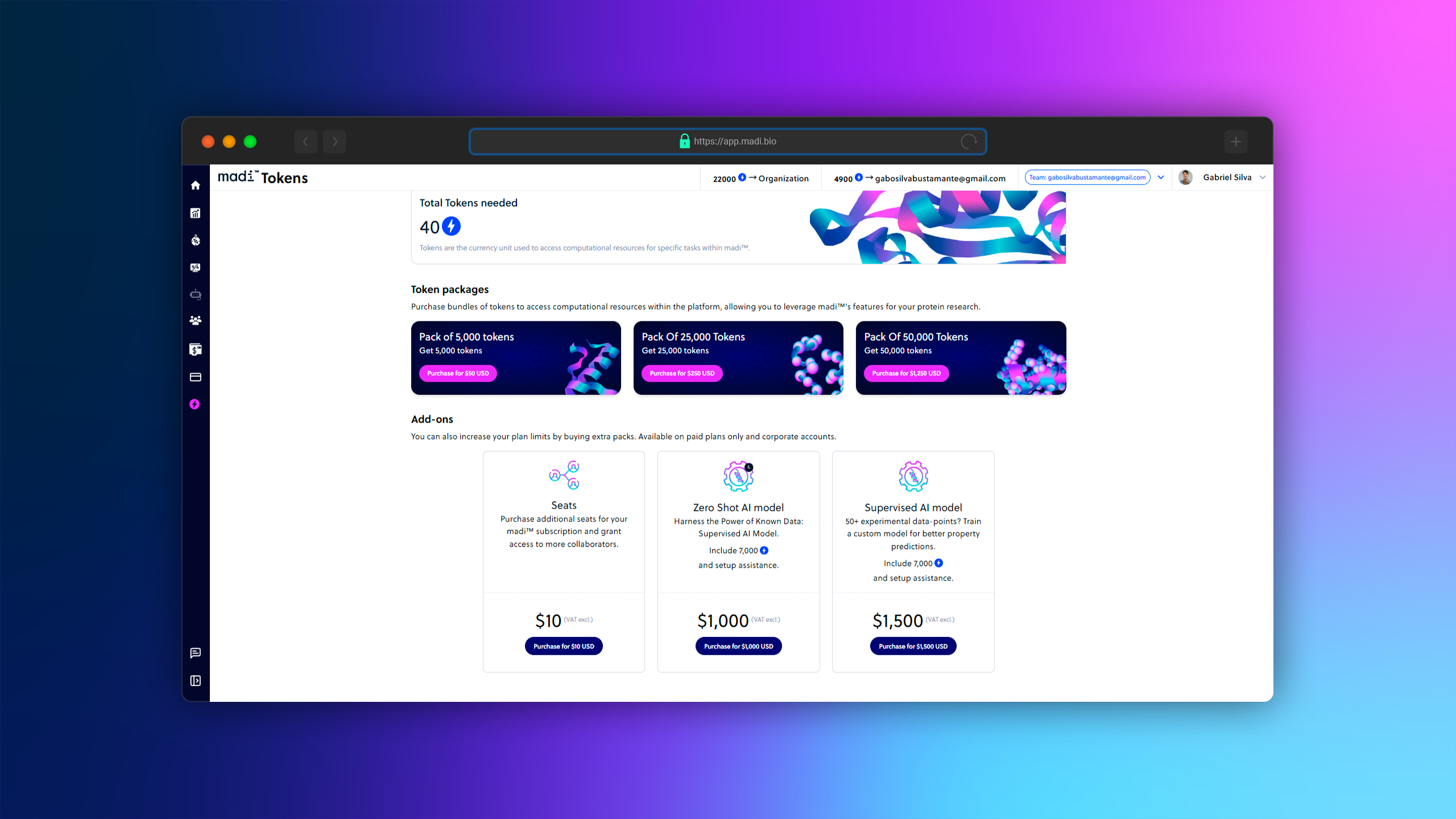
Management module 3: Wallet
To allow members to access and use available resources, these resources must first be allocated to the appropriate teams and individuals. Once assigned, teams can efficiently utilize the resources based on their specific needs. The platform offers tools to monitor how resources are being managed within each team, providing insights into usage patterns and ensuring that resources are being used effectively. This functionality helps unlock the full potential of teams, allowing them to optimize performance and allocate resources where they’re needed most.
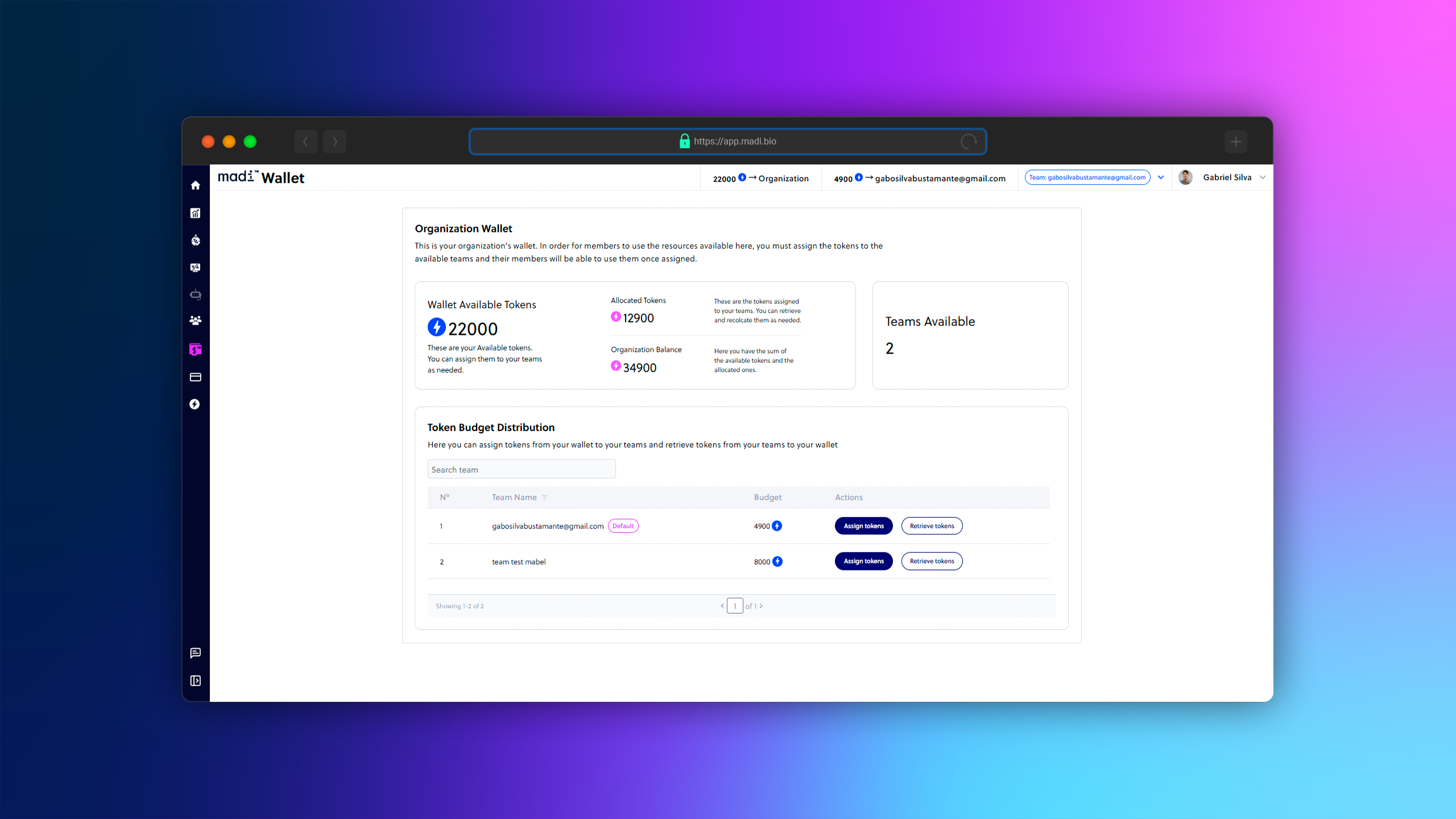
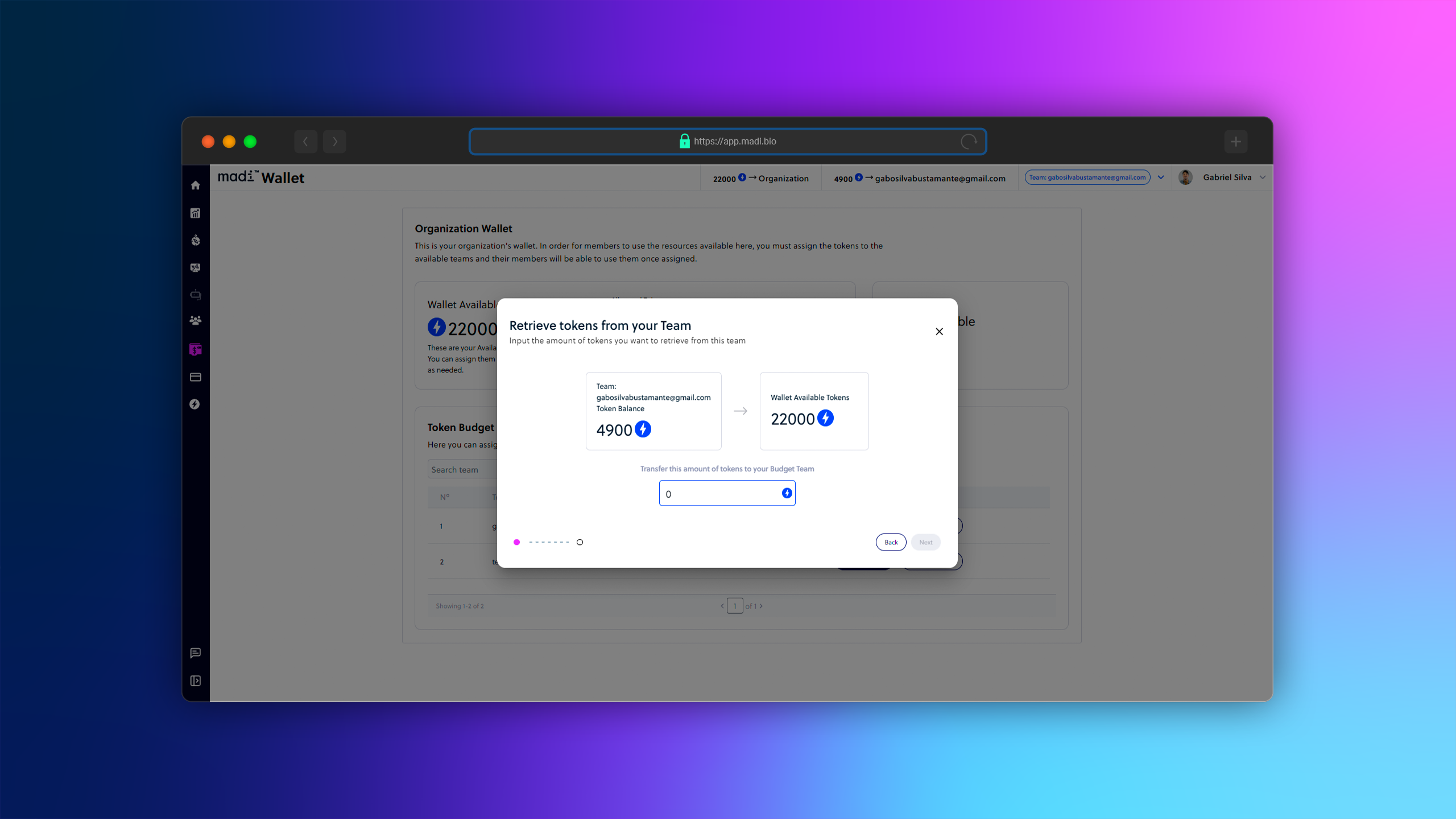
Results & Learnings
Since its launch, madi™ has opened up contract opportunities with numerous companies involved in protein-related projects across various fields and level such as: GenScript, Nvidia, Grupo Bimbo, Carbios, Indie Bio, Sofinnova Partners, SOSV, ICL and more.
Developing high-quality software and platforms presents challenges, no matter the size or scope. The experience I had working on such projects was both thrilling and educational, immersing me in new fields such as biology and offering a glimpse into the future we’re collectively shaping. Throughout the process, I collaborated closely with individuals who were equally committed to generating revenue while contributing to a better future, which allowed me to see the balance between innovation and practicality in the tech world.
One of the most impactful aspects of this journey was working with top scientists. It sharpened my skills in listening, learning, and translating intricate scientific concepts into something more accessible. I had to deeply understand complex processes to design functional systems that could accommodate the needs of both experts and non-experts alike. This experience refined my ability to create user-friendly ecosystems, where technical and scientific complexities were distilled into intuitive platforms. By transforming complex ideas into intuitive, seamless interfaces, I empowered users to not only deepen their understanding of the science behind the tools but also expand the scope of their work. This approach helped make complex concepts more tangible and usable, ultimately driving innovation forward in a meaningful way.